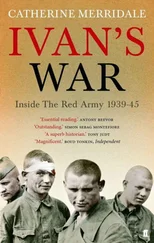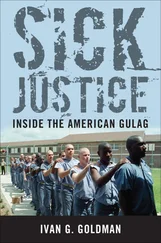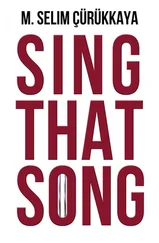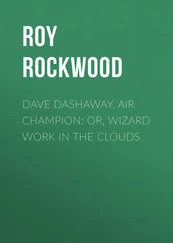“I am about to fork over my week’s rent,” I said, unsure of how much honesty beyond that was a good idea just then. “That tends to put matters in a certain perspective.”
Carefully folding my money away into her apron pocket, she allowed: “It does, doesn’t it.” Still hesitant, she went on: “There’s the matter of appearances, though. A boardinghouse has to be extra careful not to be lumped in with-” She gestured off toward the fleshly neighborhood of Venus Alley.
Now Grace looked at me, but not quite straight at me. “So you know what this means. I’m sorry, but-”
I waited, dreading the prospect of trying to find any other lodging in Butte as cozy as this.
“-you’ll have to go to church just with Hoop,” she finished off her decree. Then bounced up to take out the perfectly roasted turkey.
REPRIEVED AT THE BOARDINGHOUSE, I could now busy myself learning the ins and outs of the library’s finances. Sandison’s style of bookkeeping had been what might be called extemporaneous, with occasional casual entries of Miscellaneous book purchases followed by sums that might well make a library trustee gulp. Trying to untangle his method, if that’s what it was, I finally spotted in the ledger pages of staff wages and hours his hole card, so to speak. Me. Counting up, I could see there was not quite as much staff as was budgeted for-always a position or two short-and he covered those gaps in service, and doubtless put what would have been the wages into that bland expenditure on books, by shuttling employees from job to job during the course of a day. That works until, say, the board of trustees’ president’s wife is kept waiting at the temporarily vacant genealogy desk. My arrival plugged a lot of slots. Shunting me from task to task as Sandison did took those burdens off the other staffers; on a ranch I believe I would have been called the choreboy. I didn’t mind; variety has always been more to my taste than its opposite. I even was growing fond of the diverse evening groups, catching the end of the discussion those nights when it fell to me to go back to the library and close up, enjoying the verbal volleying about Hamlet’s nervous condition or Wilson’s strategy at the Paris peace conference. (However, I prudently waited for the Gilbert and Sullivan clan to vacate entirely before I tended to the music stands, lest Dora Sandison pounce on me with some other demand.) And on a more daily basis, when needed at a desk, I happily stepped into that role of librarian as bartender of information. Presiding over shelves of intoxicating items, dispensing whatever brand of knowledge was ordered up, I am sure I poured generously. At least Sandison must have thought so, the morning he told me to get downstairs and fill in for Miss Runyon at the Reading Room main desk as she made her grand descent to prepare for story hour.
Elevated there at the high desk, I was coping with patrons’ questions when commotion broke out in the foyer.
“Don’t, pigface.”
“Can’t take it, huh, bag ears?”
“Jack and Molly, quit that or I’ll have your hides.”
The purr of threat in the teacherly voice settled things down, at least momentarily, and in trooped as rough and tough a crowd, male and female, as I had seen yet in Butte. On the other hand, they were twelve-year-olds and a freckle epidemic was loose among them. In flat caps and pigtails, hand-me-down britches and mended pinafores, plainly these were children from one of the neighborhoods on the Hill, spruced up for the library visit, but the sprucing could go only so far. Watching casually as edgy girls and pushing boys milled down the stairwell to the auditorium, I took a bit of guilty pleasure in the thought that Miss Runyon would have her hands full with this mob.
“Mr. Morgan.” The purr was close at my side. “Your mustache is back.”
I turned and was nearly startled off my sitting place.
“Rabrab!” I blurted, drawing nasty looks and one severe shhh from the Reading Room patrons.
A knowing laugh arrived with the same throatiness as the purr. “You remember. But you would, wouldn’t you. Did you know the whole school used to call you the Walking Encyclopedia?”
I had last seen Barbara Rellis as a sixth-grader, a dark-eyed willow of a girl on the lookout for intrigue. Foremost in my memory was my first day of teaching at the Marias Coulee one-room school, when she ever so innocently raised her hand during roll call and asked if for the sake of keeping up with certain contrary stunts of the boys she couldn’t turn her name around, most of it at least, just on the schoolground where name-calling ran every direction anyway? I found an appealing flavor of logic in that and let her. The Rabrab of then had filled out into a fashionably bobbed young woman, still slender but with a substantial bodice, and those eyes that so often held mischief like a flash of struck flint now had authority to them as well. She called over to the tail of the brigade dragging its feet in the stairwell. “Margie, mind them, please, give them a swat if you have to. Tell the story lady they’re all hers, she can start. I’ll be there in a minute.” An older schoolgirl, obviously conscripted for the outing, took charge and the last of the children were hustled down the stairs.
Rabrab’s-Barbara’s-attention swung back to me. “I see that little smile,” she said with one of her own, “don’t try to hide it. You caused this, you know, my ending up a teacher. A number of us have. Paul Milliron is already a county superintendent, had you heard?” She was studying me, from my mustache on in, a faint wrinkle of puzzlement at the side of her eyes. “At first I didn’t think it could be you, perched here like the head canary. In Butte, of all places. We were told you’d gone to-where was it? Transylvania?”
“Never mind. In the here and now, I-”
“Have you been back to Marias Coulee, since?”
“Not in person. I mean, no. Rab-Barbara, that is-”
This time her smile was the sly schoolgirlish one I remembered so well, as though she had something sweet tucked in her cheek. “You can call me that. It would make two of you who do. That’s rather nice.”
We were conversing in spirited whispers, not the best etiquette for the Reading Room, and I summoned Smithers from periodicals to sit in for me. Hurriedly escorting Rab out into the foyer, where there was only Shakespeare to overhear us, I began trying to contain the situation.
“About Marias Coulee. I must take you into my confidence, Rab.” It worked. The racehorse keenness she had always shown at any prospect of conspiracy was immediately there to see. “It is best if no one in our old neighborhood knows I am back in Montana,” I went on, “because of-well, possible hard feelings, you’ll understand.” I paused for what I hoped was drama’s sake. “Rose and I had a falling out. A family matter.”
She swooped on that. “It happens over and over, doesn’t it. A brother and a sister, you’d think they were built to get along, but no, they find every way there is to get crosswise with each other. I see it all the time in my pupils. So I’m not surprised-those of us at school thought you and Rose were born in different phases of the moon, as the saying goes. And you won’t go back now because you don’t want to stir up old trouble-that is so like you, Mr. Morgan.”
“I could not have put it better myself.”
Rab leaned closer, back to whispering. “Now I’ll let you in on a secret. It just happened, the other night. I’m betrothed. E-n-g-a-g-e-d,” she rattled off as if in one of Marias Coulee’s spelling bees. She wrinkled her nose, turning in an instant into the perfect facsimile of a pretty and mischievous bride.
There was no hiding my smile this time. “The lucky man is getting more than he bargained for.”
Читать дальше










